|
Books Should Be Free Loyal Books Free Public Domain Audiobooks & eBook Downloads |
|
|
Books Should Be Free Loyal Books Free Public Domain Audiobooks & eBook Downloads |
|
Short Stories |
|---|
|
Book type:
Sort by:
View by:
|
By: Mark Clifton (1906-1963) | |
|---|---|
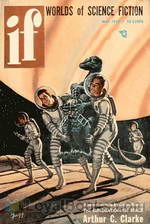 The Kenzie Report
The Kenzie Report
| |
By: Mark Twain (1835-1910) | |
|---|---|
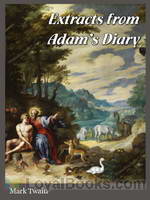 Extracts from Adam's Diary
Extracts from Adam's Diary
Get the true story of Adam and Eve, straight from the source. This humorous text is a day-to-day account of Adam’s life from happiness in the “GARDEN-OF-EDEN” to their fall from grace and the events thereafter. Learn how Eve caught the infant Cain, and Adam takes some time to learn exactly what it is. | |
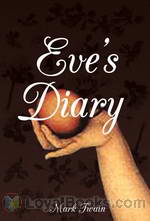 Eve's Diary
Eve's Diary
Eve's Diary is a comic short story by Mark Twain. It was first published in the 1905 Christmas issue of the magazine Harper's Bazaar, and in book format in June 1906 by Harper and Brothers publishing house. It is written in the style of a diary kept by the first woman in the Judeao-Christian creation myth, Eve, and is claimed to be "translated from the original MS." The "plot" of this novel is the first-person account of Eve from her creation up to her burial by, her mate, Adam, including meeting and getting to know Adam, and exploring the world around her, Eden... | |
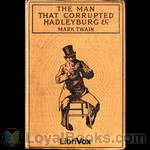 The Man That Corrupted Hadleyburg, and Other Stories
The Man That Corrupted Hadleyburg, and Other Stories
“The Man That Corrupted Hadleyburg” is a piece of short fiction by Mark Twain. It first appeared in Harper’s Monthly in December 1899, and was subsequently published by Harper Collins in the collection The Man That Corrupted Hadleyburg and Other Stories and Sketches (1900). This recording contains all the stories and sketches from the 1900 Harper Collins publication. | |
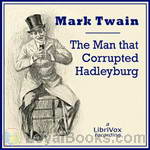 The Man That Corrupted Hadleyburg
The Man That Corrupted Hadleyburg
The town of Hadleyburg had the reputation of being the most honest town in a wide area, indeed an incorruptible community. The elders took this reputation so to heart that they brought up their children shielded from all temptation and trained thoroughly in total honesty. However, a stranger passing through the community was seriously offended by the actions of residents of this Utopia, and he vowed to gain revenge. After several years he came up with the perfect plan to embarrass the town and expose its hypocrisy. (Introduction by Leonard Wilson) | |
 Alonso Fitz and Other Stories
Alonso Fitz and Other Stories
A collection of Twain short stories including:The Loves Of Alonzo Fitz Clarence And Rosannah EtheltonOn The Decay Of The Art Of LyingAbout Magnanimous-Incident Literature The Grateful Poodle The Benevolent Author The Grateful HusbandPunch, Brothers, PunchThe Great Revolution In PitcairnThe Canvasser's TaleAn Encounter With An InterviewerParis NotesLegend Of Sagenfeld, In GermanySpeech On The BabiesSpeech On The WeatherConcerning The American LanguageRogers | |
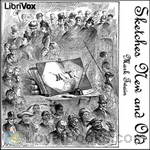 Sketches New and Old
Sketches New and Old
This collection of 63 writings by Mark Twain was published in 1875. Among other sketches, it contains “The Jumping Frog” in the original English, followed by a French translation (read here by Caroline Sophie) which Twain re-translated into English, showing how the French translation of his work was “badly flawed.” In many of these sketches, Twain shows his talent for outrageous and hilarious inventiveness, often in reaction to current events. | |
 The Curious Republic of Gondour and Other Whimsical Sketches
The Curious Republic of Gondour and Other Whimsical Sketches
As the title reveals, these stories are a collection of some of Mark Twain's more fanciful and eccentric works. They run the gamut from political commentary to our species' need to "be remembered" somehow. Taken as a whole the stories are "whimsical". Taken individually, they speak the truth in different ways. (Introduction by John Greenman) | |
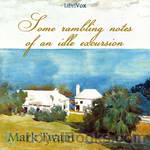 Some Rambling Notes of an Idle Excursion
Some Rambling Notes of an Idle Excursion
Written for the Atlantic magazine in 1877, this is a collection of stories about a trip Mark Twain made with some friends to Bermuda. It contains fascinating descriptions of Bermuda the island, and some of its people as well as an explanation of why Bermuda's houses are "so white". | |
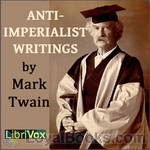 Anti-imperialist writings
Anti-imperialist writings
This audiobook is a collection of Mark Twain's anti-imperialist writings (newspaper articles, interviews, speeches, letters, essays and pamphlets). | |
 How to Tell a Story, and Other Essays
How to Tell a Story, and Other Essays
In his inimitable way, Mark Twain gives sound advice about how to tell a story, then lets us in on some curious incidents he experienced, and finishes with a trip that proves life-changing. | |
 Mark Twain’s Journal Writings, Volume 2
Mark Twain’s Journal Writings, Volume 2
This second collection of essays by Mark Twain is a good example of the diversity of subject matter about which he wrote. As with the essays in Volume 1, many first appeared alone, in magazines or newspapers, before being printed as chapters of his larger works, while others were taken from larger works and reprinted in collections of essays. On top of being prolific, Mark Twain was a very successful marketer of his works. Volume 2 contains the following works: 1.) "A Curious Experience" - 1892 2... | |
 Mark Twain’s Journal Writings, Volume 3
Mark Twain’s Journal Writings, Volume 3
This third volume of Mark Twain's journal writings continues on eclectic and varied path established by the first two volumes. Included in this collection are works that appeared by themselves in magazines during Twain's lifetime, as well as essays taken by editors and Twain himself from Twain's larger works, and re-published in collections of his stories. This volume includes the following works: "Buying Gloves in Gibraltar", "The great revolution in Pitcairn", "A Gift from India" [including editor's... | |
 More Newspaper Articles by Mark Twain
More Newspaper Articles by Mark Twain
"More Newspaper Articles by Mark Twain" fills in the gaps left by the first collection of newspaper articles: "Newspaper Articles by Mark Twain" . The missing articles, collected by twainquotes.com, consist of works printed in the Muscatine Journal, the Keokuk Daily Post, the New York Sunday Mercury, the Golden Era, the Californian, The Daily Dramatic Chronicle, San Francisco Bulletin, the New York Herald and travel letters originally printed in the Chicago Daily tribune. The earliest articles first appeared in 1853... | |
 How To Tell A Story, and Other Essays (Version 2)
How To Tell A Story, and Other Essays (Version 2)
The complete collection of works using this title. Other versions, including the Project Gutenberg version, have been radically shortened. Mark Twain published several collections of his short stories and essays. This collection, like the others, dramatically demonstrates the eclectic nature of his work and the depth of his humanistic thinking. Each essay stands alone. Listeners will find many instances where modern times come to mind. | |
By: Mary Cholmondeley (1859-1925) | |
|---|---|
 The Lowest Rung Together with The Hand on the Latch, St. Luke's Summer and The Understudy
The Lowest Rung Together with The Hand on the Latch, St. Luke's Summer and The Understudy
| |
By: Mary E Wilkins Freeman | |
|---|---|
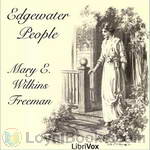 Edgewater People
Edgewater People
A collection of interrelated short stories concerning the townfolk of a few small New England villages at the turn of the last century. | |
By: Mary E. (Mary Ellen) Bamford | |
|---|---|
 Out of the Triangle: a story of the Far East
Out of the Triangle: a story of the Far East
| |
By: Mary E. Wilkins Freeman (1852-1930) | |
|---|---|
 Evelina's Garden
Evelina's Garden
This is a long short story from 1899, approximately 95 minutes more or less, about a mysterious woman living virtually alone on the outskirts of a small New England town in a mansion with a magnificent garden. (Introduction by BellonaTimes) | |
By: Mary Eleanor Wilkins Freeman (1852-1930) | |
|---|---|
 The Copy-Cat and Other Stories
The Copy-Cat and Other Stories
| |
By: Mary Gaunt (1861-1942) | |
|---|---|
 The Moving Finger
The Moving Finger
| |
By: Mary Hallock Foote (1847-1938) | |
|---|---|
 Touch of the Sun and Other Stories
Touch of the Sun and Other Stories
Four short stories by Mary Hallock Foote (1847–1938), an American author and illustrator. She is best known for her illustrated short stories and novels portraying life in the mining communities of the turn-of-the-century American West. She is famous for her stories of place, in which she portrayed the rough, picturesque life she experienced and observed in the old West, especially that in the early mining towns. She wrote several novels, and illustrated stories and novels by other authors for various publishers... | |
 In Exile and Other Stories
In Exile and Other Stories
Six short stories by Mary Hallock Foote (1847–1938), an American author and illustrator. She is best known for her illustrated short stories and novels portraying life in the mining communities of the turn-of-the-century American West. She is famous for her stories of place, in which she portrayed the rough, picturesque life she experienced and observed in the old West, especially that in the early mining towns. She wrote several novels, and illustrated stories and novels by other authors for various publishers... | |
By: Mary Hartwell Catherwood (1847-1902) | |
|---|---|
 The Indian On The Trail From "Mackinac And Lake Stories", 1899
The Indian On The Trail From "Mackinac And Lake Stories", 1899
| |
By: Mary Louisa Molesworth (1839-1921) | |
|---|---|
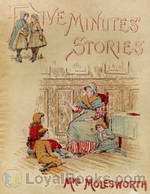 Five Minutes' Stories
Five Minutes' Stories
This is a collection of short stories for children. Listeners may wish to have a look at the text at Project Gutenberg to see the many illustrations accompanying each story. | |
By: Maud Lindsay (1874-1941) | |
|---|---|
 Mother Stories
Mother Stories
"I have endeavored to write, for mothers and dear little children, a few simple stories, embodying some of the truths of Froebel's Mother Play...Most of these stories have been told and retold to little children, and are surrounded, in my eyes, by a halo of listening faces" from the Preface to Mother Stories by Maud Lindsay | |
 Story-teller
Story-teller
Are you a story teller? Almost all of us are, you know. Well, these 12 stories were written by Maud Lindsay to be told by someone who can weave the magic thread of speech into a performance that will hold the children spellbound. And we don't need to be perfect, just willing to tell a story; that is really all children ask, someone willing to tell a story. 8 of Librivox's Story tellers have volunteered to tell these enchanting tales (and sometimes sing the sweet little melodies that are included... | |
By: Maurice Leblanc (1864-1941) | |
|---|---|
 The Eight Strokes of the Clock
The Eight Strokes of the Clock
The Eight Strokes of the Clock is a collection of eight short stories by Maurice Leblanc. The stories have his most famous creation, Arsène Lupin, gentleman-thief, as main character. The eight stories, even though independent, have a leading thread: Lupin, under the name of Serge Rénine, trying to conquer the heart of a young lady, travels with her, solving eight mysteries on the way. | |
By: Max Pemberton (1863-1950) | |
|---|---|
 The Man Who Drove the Car
The Man Who Drove the Car
| |
By: Max Simon Nordau (1849-1923) | |
|---|---|
 How Women Love (Soul Analysis)
How Women Love (Soul Analysis)
| |
By: May Sinclair (1863-1946) | |
|---|---|
 Two Sides of a Question
Two Sides of a Question
Here are two gemlike novellas in one volume, written in May Sinclair’s clearest and cleverest prose and exploring the many ways in which a woman can be held captive, held back from the “intoxication of freedom.” In “The Cosmopolitan,” Frida Tancred is a wealthy heiress trapped by family obligation in a dismal provincial estate, hopelessly longing to see all the glories of the world and with no way of escape but the conventional one of marriage. In “Superseded,” spinsterish Miss Juliana Quincey has been teaching arithmetic in a London girls’ school for twenty-five years when she suddenly falls in love with a much younger man and begins to question the assumptions of her life... | |
By: Michael Barrett (1848-) | |
|---|---|
 Up in Ardmuirland
Up in Ardmuirland
| |
By: Michel Verne (1861-1925) | |
|---|---|
 In the Year 2889
In the Year 2889
| |
By: Miguel de Cervantes Saavedra (1547-1616) | |
|---|---|
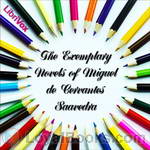 The Exemplary Novels of Miguel de Cervantes Saavedra
The Exemplary Novels of Miguel de Cervantes Saavedra
Originally compiled by Cervantes himself in 1613 as a collection of "exemplary" stories, this translated version from 1881 brings these stories to the English reader. Included in the collection are twelve stories selected by Cervantes, including "A Deceitful Marriage," which famously transitions seamlessly and humorously into the "Dialogue Between Scipio and Berganze". | |
By: Mildred Aldrich (1853-1928) | |
|---|---|
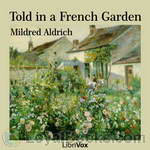 Told in a French Garden
Told in a French Garden
American friends begin to summer in a beautiful French country house when WWI breaks out. They decide not to evacuate as the war encroaches. Their interactions are interwoven by the stories that they take turns telling after dinner each night to stimulate their nightly conversation and distract their thoughts from the war. | |
By: Montague Glass (1877-1934) | |
|---|---|
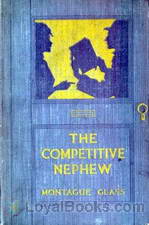 The Competitive Nephew
The Competitive Nephew
| |
By: Morgan Robertson (1861-1915) | |
|---|---|
 The Grain Ship
The Grain Ship
| |
By: Morris Hershman (1920-) | |
|---|---|
 Spacemen Never Die!
Spacemen Never Die!
| |
By: Mrs. Molesworth (1839-1921) | |
|---|---|
 The Thirteen Little Black Pigs and Other Stories
The Thirteen Little Black Pigs and Other Stories
| |